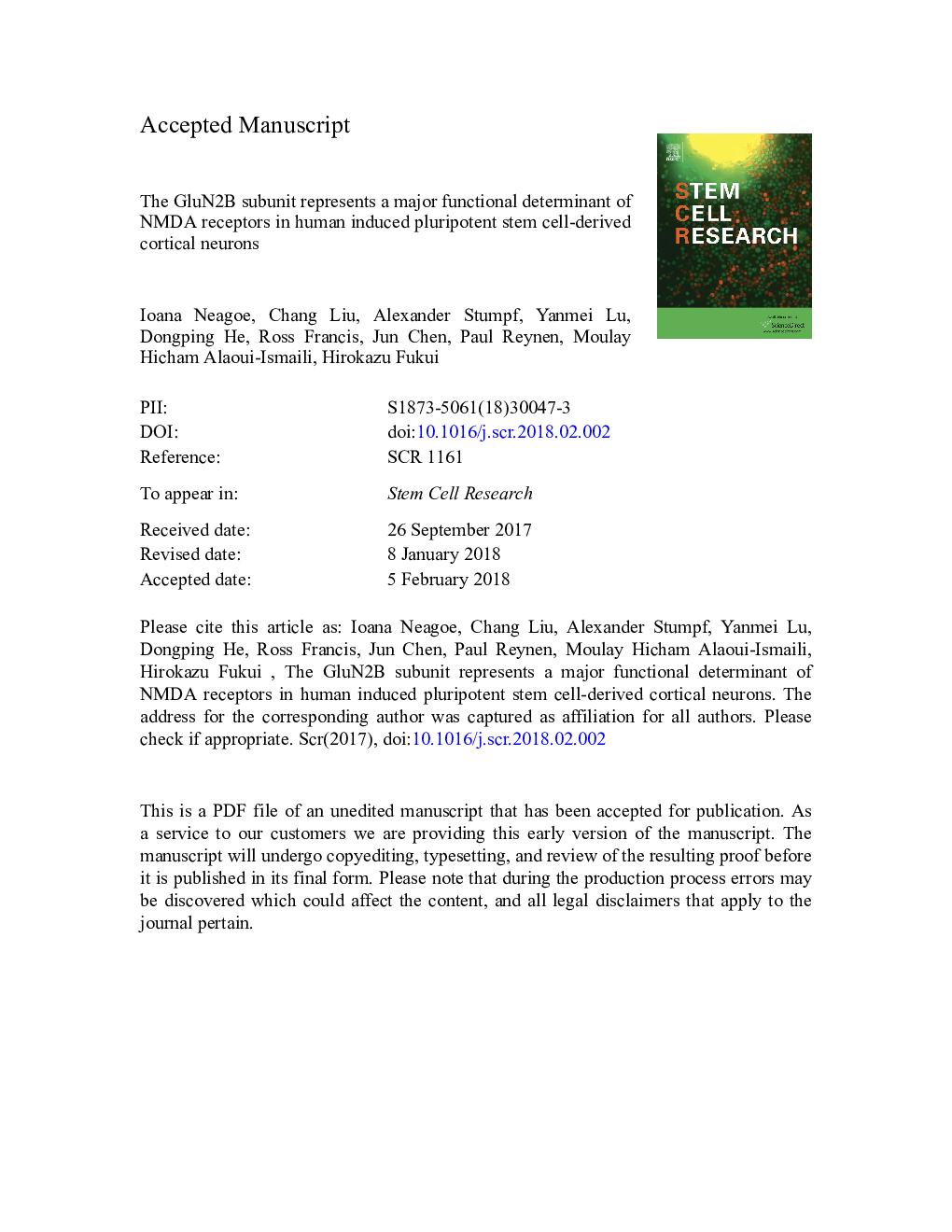| Article ID | Journal | Published Year | Pages | File Type |
|---|---|---|---|---|
| 8425358 | Stem Cell Research | 2018 | 31 Pages |
Abstract
Abnormal signaling pathways mediated by N-methyl-d-aspartate receptors (NMDARs) have been implicated in the pathogenesis of various CNS disorders and have been long considered as promising points of therapeutic intervention. However, few efforts have been previously described concerning evaluation of therapeutic modulators of NMDARs and their downstream pathways in human neurons with endogenous expression of NMDARs. In the present study, we assessed expression, functionality, and subunit composition of endogenous NMDARs in human induced pluripotent stem cell (hiPSC)-derived cortical neurons (iCell Neurons and iCell GlutaNeurons). We initially confirmed the expected pharmacological response of iCell Neurons and iCell GlutaNeurons to NMDA by patch-clamp recordings. Subsequent pharmacological interrogation using GluN2 subunit-selective antagonists revealed the predominance of GluN2B in both iCell Neurons and iCell GlutaNeurons. This observation was also supported by qRT-PCR and Western blot analyses of GluN2 subunit expression as well as pharmacological experiments using positive allosteric modulators with distinct GluN2 subunit selectivity. We conclude that iCell Neurons and iCell GlutaNeurons express functional GluN2B-containing NMDARs and could serve as a valuable system for development and validation of GluN2B-modulating pharmaceutical agents.
Related Topics
Life Sciences
Biochemistry, Genetics and Molecular Biology
Biotechnology
Authors
Ioana Neagoe, Chang Liu, Alexander Stumpf, Yanmei Lu, Dongping He, Ross Francis, Jun Chen, Paul Reynen, Moulay Hicham Alaoui-Ismaili, Hirokazu Fukui,
